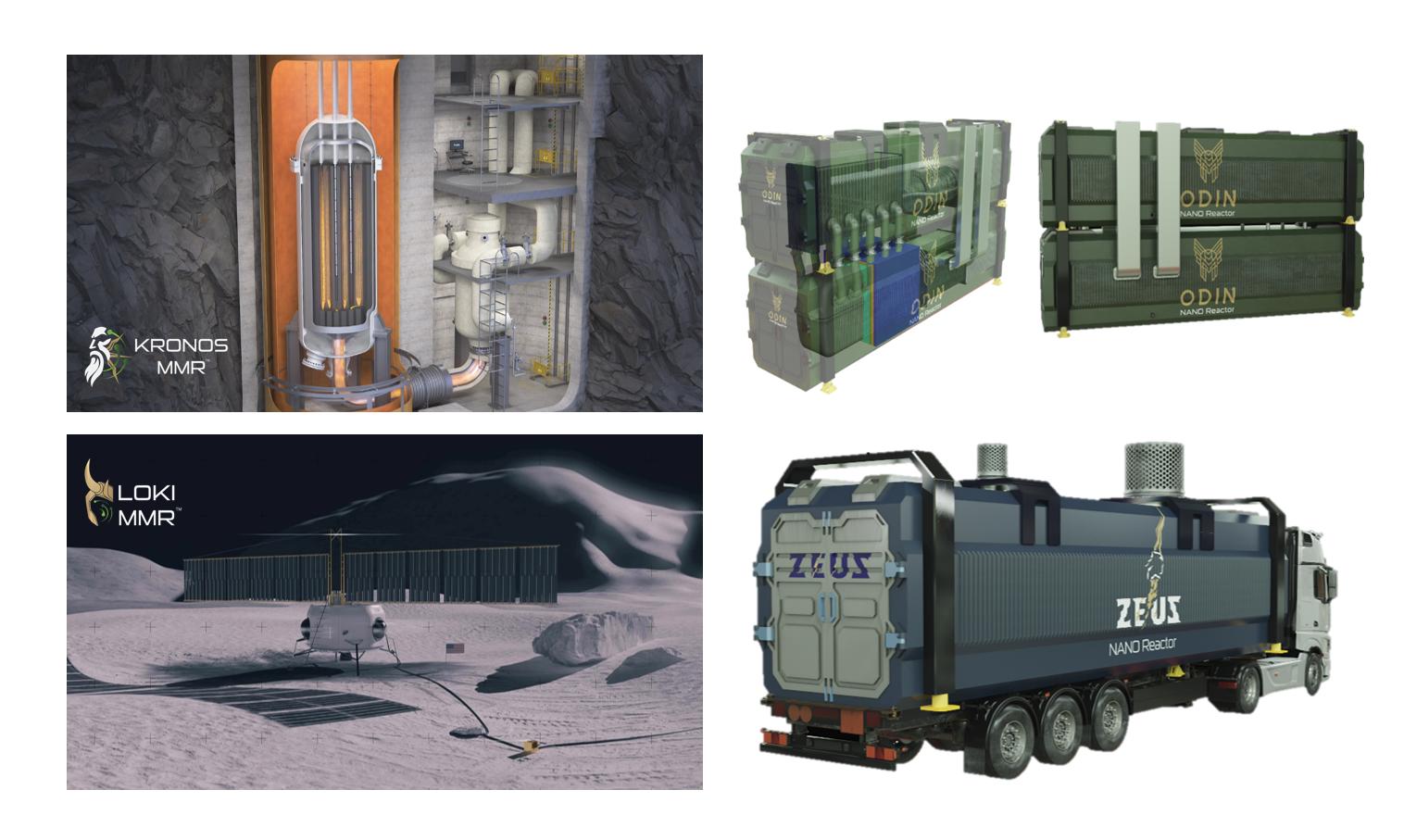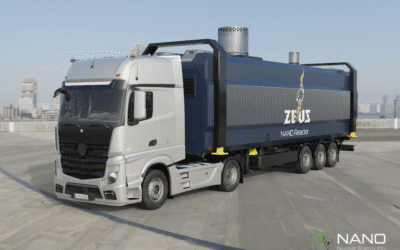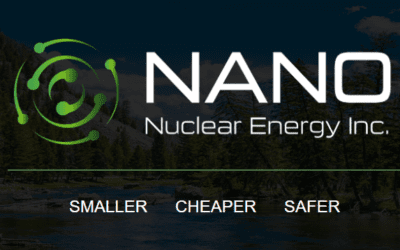Patents recently acquired from Ultra Safe Nuclear add protections relating to NANO Nuclear’s proprietary, portable and modular microreactors in development, ZEUS and ODIN as well as recently acquired KRONOS MMR and LOKI MMR reactors
NANO Nuclear Energy Inc. (NASDAQ: NNE) (“NANO Nuclear” or “the Company”), a leading advanced nuclear energy and technology company focused on developing clean energy solutions, today highlighted its recently acquisition of important intellectual property pertaining to its modular microreactor technologies under development, encompassing patents granted across multiple jurisdictions.
The acquired patent portfolio includes Patent No. US 10,229,757 B2, titled “Modular Transportable Nuclear Generator” granted by the United States Patent and Trademark Office (USPTO) as well as related patents issued in Canada, the Russian Federation, Japan, The People’s Republic of China, the Republic of Korea and by the World Intellectual Property Organization. The patents were recently acquired by NANO Nuclear in its previously announced transaction with Ultra Safe Nuclear Corp.
The patent portfolio grants NANO Nuclear additional protections surrounding its transportable, compact modular nuclear generator systems and supports variable operations with multiple core configurations and applications, including the generation of electric power and process heat. This intellectual property is expected to enhance the protections for NANO Nuclear’s own proprietary advanced portable ZEUS and ODIN microreactors, as well the KRONOS MMRTM and LOKI MMRTM reactors, all of which are currently in development.
Figure 1 – NANO Nuclear’s proprietary advanced portable ZEUS and ODIN microreactors, as well the the KRONOS MMRTM and LOKI MMRTM reactors, all of which are currently in development.
The energy systems are designed to be easily transportable and retrievable, including systems developed to passively ensure core cooling under all accident scenarios and may provide power ratings from 10 to 45 mega-watt thermal (MWt). Their design aims to reduce the balance of plant, shrinking the maximum size of the reactor by simplifying its cooling systems and decreasing the system’s footprint on site.
Additionally, the patented design enables multiple microreactors to be clustered to match site-specific energy or process heat demands. Applications for these innovative energy systems range from securely powering industrial processes, such as mining, oil and gas extraction, and ship propulsion, to energizing data centers, providing residential power for remote communities, serving as microgrids for island nations, and supporting military bases with reliable, on-demand power.
“We are pleased to expand our intellectual property portfolio with these recently acquired patents, further strengthening the protections surrounding our proprietary, portable and modular microreactor technologies in development.,” said Jay Yu, Founder and Chairman of NANO Nuclear Energy. “The addition of these patents, issued in the United States and internationally, will help to safeguard our technologies as we continue to develop, refine, and advance our nuclear energy systems toward demonstration, regulatory licensing and eventual commercialization. It also bolsters our goal of positioning NANO Nuclear as a global leader in advanced nuclear energy technology.”
“I’m thrilled about the capabilities these newly acquired patents bring to our research and development efforts and the support that they provide to our technical teams as we continue the development of our various energy systems,” said James Walker, Chief Executive Officer and Head of Reactor Development of NANO. “The addition of these patents further underscores our steadfast commitment to innovation in the advanced nuclear energy sector and emphasizes our ambition to establish NANO Nuclear as a leading, global player in advanced nuclear energy technologies. By expanding our intellectual property portfolio, we aim to bolster our capacity to develop next-generation nuclear energy solutions that address evolving market needs and drive transformative change in the industry.”
Related Articles
NANO Nuclear Files Six New Patent Applications Related to its Proprietary ZEUS™ Microreactor
NANO continues work to expand its intellectual property portfolio New York, N.Y., May 30, 2025 (GLOBE NEWSWIRE) -- NANO Nuclear Energy Inc. (NASDAQ: NNE) (“NANO Nuclear” or “the Company”), a leading advanced nuclear energy and technology company, today announced that...
NANO Nuclear Energy Closes $105 Million Common Stock Private Placement
NANO Nuclear’s cash position at over $210 Million, which will fuel the company’s continued innovations in the advanced nuclear energy sector Financing included primary participation from fundamental institutional investors, including a pre-eminent global investment...




